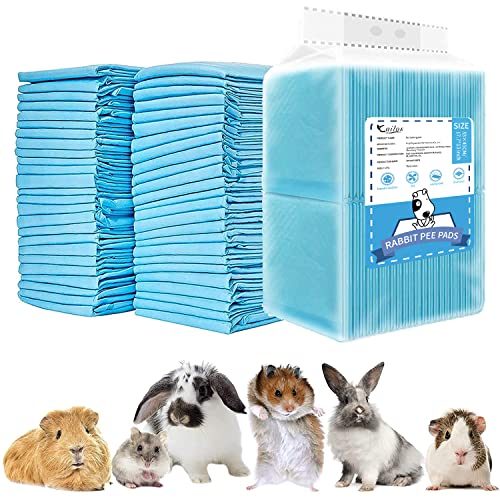Luvmyzoocrew wrote:
Ok so on my facebook everyone hears me talking about my animals, rabbits, and posting animal realted things. Well come March when everyone starts thinking about Easter (the biggest "buy a cute lil bunny/piggie" campaign starts) I want to start posting the GOOD, the BAD, and the UGLY about owing a rabbit. I want to put on "did you know fact,caring for tip, whatever" about rabbits on my facebook page
my hope is that even if i keep just ONE person from buying a rabbit that they will not keep or really dont want then that is one bunny that wont go to a shelter. If one person takes my posting and posts it to their wall and gets someone on their list not to get a rabbit that they dont want then i have done my job or what i have set out to do.
SNIP
ok so these are some of what i came up with , so please feel free to fix anything that is wrong. I will also stress the petstore aspect, unexpected pregnancies, the importance of sexing a rabbit correctly. Any other links would be great too for information, in alot of these posts i will also include the piggies in it. I will also put RABBITSONLINE link in my posts for the peeps on my facebook that have rabbits already to check out and if someone does decide to get on, a great place for them to research it.
Since you're directing this to non-rabbit people, I wouldtry a different angle that doesn't lay out every small detail, but still gets across the amount of work involved in having a rabbit:
Rabbits are herbivores and have very specific dietary requirements. Sudden dietary changes can cause seriousdigestive upset and even death. Gas can be fatal to rabbits.
Rabbits are not rodents. They're lagomorphs!
Rabbits can live, on average, 10 to 12 years. The oldest rabbit on record is 16!
Rabbits can be litter trained andare actually very clean animals. Rabbits can also decide they are no longer litter trained at a moment's notice.
Rabbits molt on average twice a year. During those times, expect a lot of hair. Everywhere.
Rabbits can be trained to perform tricks and come to their name. Sometimes. When they want to.
Like other non-breeding pets, rabbits should be spayed and neutered. As much for their mental health and theelimination of undesirable behaviours as to reduce the unwanted pet population.
Rabbits breed like . . . rabbits!Rabbits can breed at any time, even through wire cages. Gestation lasts only 28-30 days and rabbits can become pregnant the same day they give birth.
Rabbits chew. Rabbits dig.A bored rabbit can be very destructive. Expect to invest in bunny-proofing materials and bunny-friendly toys.
Rabbits are highly social animals. They do not thrive when they are locked in a small cageand ignored.
Rabbits are not very vocal. They communicate mostly through body language.Just because a rabbit does not vocalize, doesn't mean theydon't have an opinion!
Rabbits are prone to hiding illness. It's important to be in tune to their diet, theirdaily output, and their behaviour.
Rabbits are considered "exotic pets" byveterinarians and therefore the cost of their care is more expensive than dogs and cats. Because they are "exotic pets", not all vets are experienced with their care. Rabbits should see a "rabbit savvy" vet.
Rabbits, especiallydwarf breeds,are not good pets for very young children. Any pet should be the family pet with parents taking the lead in its care.
I figure, by taking a more negative POV, but keeping your facts interesting, you should dissuade the non-rabbit people, while encouraging the true bunny lovers.
Hope that helps!
Rue





































































